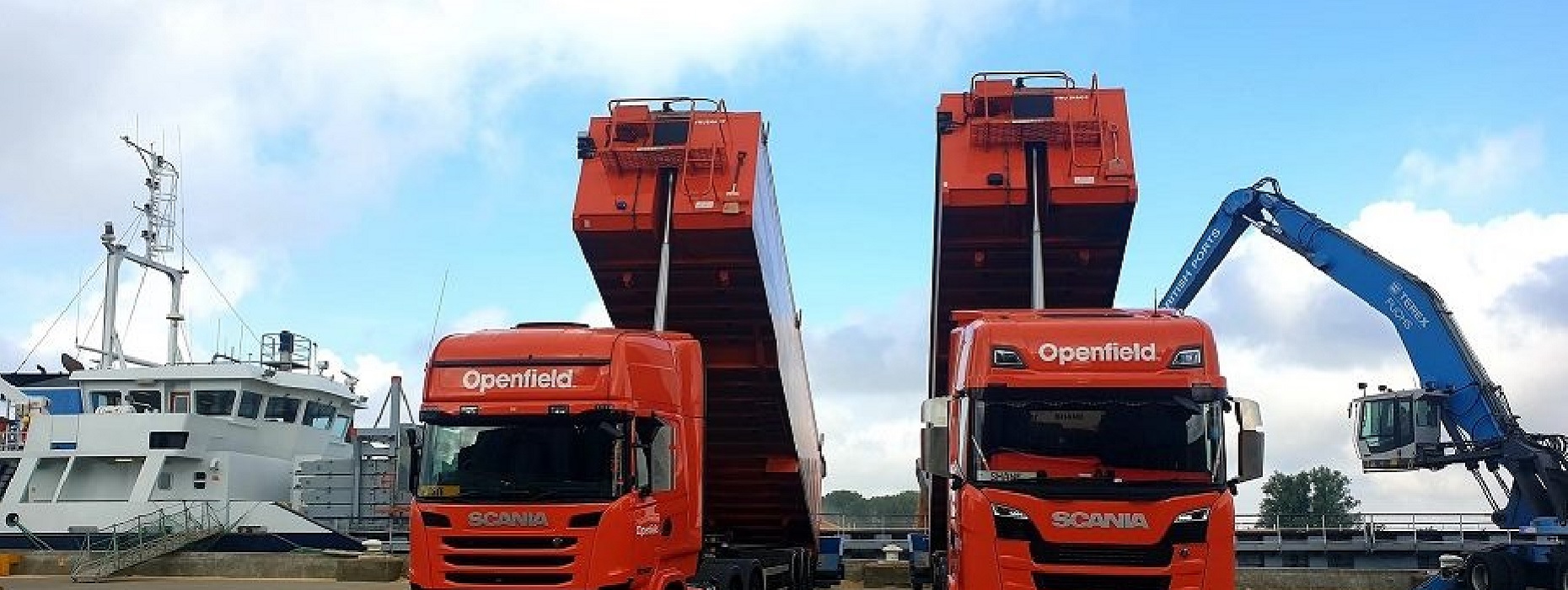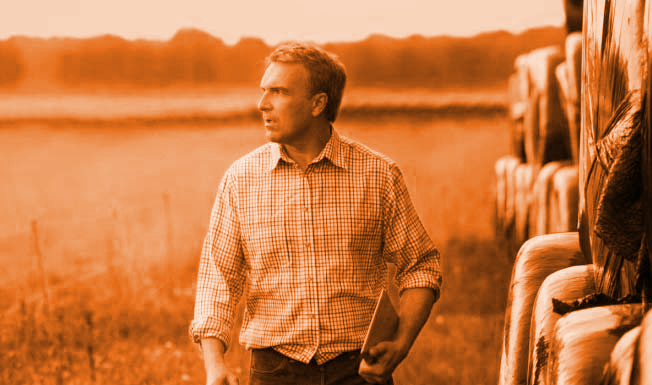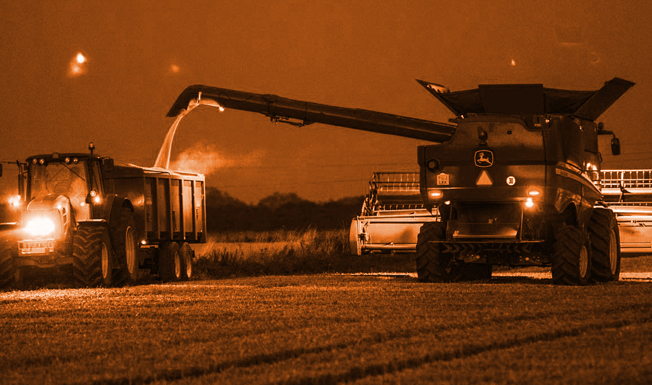Better buying, better selling – Testing times for the grain trade?
A grain trade that’s ready for Brexit needs to be efficient, far-reaching, fully digital and trustworthy. Buyers come to us because we’re recognised as a trader with a more developed process – we understand their requirements.
By Tom Allen-Stevens, Editor CPM Magazine
It’s fair to say this year’s large exportable UK cereal surplus – the first one in wheat since 2016 – combined with the threat of a no-deal Brexit at the end of October, have given the grain trade something of a challenge.
Between July and the end of October, 1.25M tonnes of new crop, or around 42,000 lorry loads, were sold for spot movement, according to AHDB – double the figure for the same period last year. The 2.88M tonne surplus from the 2019 cereal crop kept ports working like fury, and it’s estimated more than half of this was shipped across the water between harvest and Halloween. So the UK’s managed to shift the load from its swollen stores in double-quick time at a price point that’s remained above a respectable £120/t for feed wheat – no mean feat into a global demand situation AHDB describes as “comfortable”.
Openfield has played its part in a major logistics and fulfilment operation to ship Britain’s exportable surplus before 31 Oct, says Richard Jenner.
According to Richard Jenner of Openfield, the past few months have been a good illustration of a logistics and fulfilment operation that’s ready for the rigours of Brexit. “The UK grain trade has done a pretty good job of engaging with EU customers and also more exotic destinations and exported as much as we could before 31 Oct. As the UK’s largest farmer-owned co-operative, we’ve played our part – we have access to all the main ports, the infrastructure to manage the logistics, an understanding of phytosanitary barriers and other overseas requirements, and we’ve built up trust with customers around the world.”
Nor are these just words – Openfield was responsible for 26% of the cereal exports traded between July and the end of Oct. Just last month, 64,000t of feed barley was sourced from growers across the South West and loaded onto the MV Sidari, destined for Saudi Arabia, through Openfield’s deep-water facilities at Portbury Grain Terminal.
“Trading internationally can be a closed tender procedure, but buyers come to us because we’re recognised as a trader with a more developed process – we understand their requirements. The Japanese buyer likes to audit facilities, for example, the North African market doesn’t take grain above 14% moisture and feed barley sold to China has to be completely free of sterile brome,” notes Richard.
“Only when you’re constantly engaged with those markets, when you’re trading the lion’s share of UK exports with them, can you be relied on to manage requirements that could perhaps be perceived as a little more rigorous.”
Closer to home, long-standing year-on-year agreements with maltsters in Germany and Holland, and soft wheat millers in Spain, have led to trading agreements built on trust. “If a tariff was imposed on exports to the EU, there’s no doubt it would have an impact on the market, but those relationships won’t disappear overnight,” he says.
Here in the UK, Richard believes there are good opportunities to take forward similar relationships with domestic food and drink customers. “A good illustration comes from when Hovis closed its Southampton mill in Jan 2019, which was supplied by large commitments from southern co-operative stores, such as Trinity Grain, as well as by individual growers whose grain we market,” he notes.
“We’ve developed relationships, such as with Heygates, and adapted logistics to ensure affected growers can continue to supply the premium milling market and that end users get grain of the right spec when they want it.”
Richard recognises the home-grown market faces a potential threat from zero-tariff imports, but insists Openfield is well placed to address this. “Firstly, we’re the only national UK trader that’s entirely owned by its member farmers. So we work exclusively in the interests of the UK farmer, and we won’t be bringing in imports.
“But equally important is the relationship we have with the end user. It’s an open and honest relationship, flexible in a mature supply chain.”
He points to the ability for Openfield to deliver to certain sites on a vendor-assured basis, where the load is tested before it reaches the mill. This adds flexibility and improves turn-around times, while the buyer can be confident of receiving what they expect without having to test.
But perhaps more exciting are the recent developments in data analytics and some of the digital services Openfield has introduced. “Haulage is by far our most significant spend,” Richard explains. “Ultimately the most efficient system for farmer and end user, as well as for us, is just-in-time delivery. The grain trade is some way off being able to achieve that, but we are making significant progress. Digital systems are the key, and what we’ve done so far has been very well received.”
At the centre of the new developments lies Openfield’s logistics app created in-house to manage somewhere in the region of 150,000 deliveries made annually. Track My Truck is the farmer-facing element of this, that allows the grower to anticipate when a lorry’s on its way to the farm. Data gathered when tipping goes straight through to Insight, Openfield’s web portal, where results can be viewed within minutes by growers.
This means there’s a staggering degree of data gathered on individual loads that can be aggregated and analysed so that inefficiencies and problems can be addressed. “A common issue is when lorries are delayed when tipping,” explains Richard. “We can identify sites and times where unacceptable delays are occurring and seek to address these. The important element is to have the data, so you can come at it from an informed standpoint and find a solution that works.”
The system also allows for digital recording of many of the critical checks required for grain assurance. “It’s not fully digital yet – there’s still some paper in the system, such as grain passports. But we’re ready to move to a digital system and there’ll be credible benefits for UK grain on both domestic and export markets when we do,” notes Richard.
This will add to Britain’s strong position as a trusted grain producer going forward, he says. “We firmly believe that the UK assurance system is the best available and should provide a competitive advantage. That’s not to say we would always achieve a higher value, but it does help put the UK at the front of the queue. Robust grain assurance along with the good trading relationships we already have and smart logistics put us in a great place as we continue through a turbulent political and trading environment. So there’s every reason to be optimistic, whatever happens with Brexit.”
Trust puts smoothness into a locally grown beer
When Suffolk-based brewery Adnams was looking for local growers to supply its site in Southwold, it was Openfield that Simpsons Malt, who supply the brewery, turned to. “Adnams, in line with a number of other similar-sized UK breweries, are looking towards benefiting from the provenance of producing beer from locally grown barley– mainly in Suffolk and Norfolk,” explains Mike Dagg.
“Openfield is our preferred partner, and also bring in the number of growers who can produce to the right spec in the local area.” The contract on offer was for max 1.65%N spring barley, which started with Propino, but has now moved to RGT Planet.
While much of the Planet for Adnams is brought in at harvest from local farms straight into Simpsons’ stores, Openfield supplies barley of the correct quality for a number of other contracts, running an intake on Simpsons’ behalf. This is operated on a vendor-assured basis, with quality checks carried out by Openfield. “For a relationship like this to work well, there has to be an element of trust,” says Mike. “But there are benefits for all from the efficiencies this builds into the supply chain, with fewer delays on deliveries and shorter turnaround times.
“These shouldn’t be underestimated – there are currently massive problems with haulage in the south of England, and it can be difficult to find operators at the standard required for assured grain who can meet the commitment we’re looking for,” he adds.
Five years on, Mike reports that both the Adnams contract and the relationship are working well for all involved. “We’re in the process of undertaking a similar contract with another brewery, and there may be other similar-sized customers who’ll look to strengthen the provenance of their raw material.”
Uncertain times call for disciplined decisions
Think carefully before switching land destined for winter cereals into a spring option, cautions Openfield’s head of compliance, research and shipping Cecilia Pryce. There may be a disappointing proportion of the UK’s cropping requirement currently in the ground, but that is no guarantee that a poorly grown spring crop will shine on the grain market after harvest.
“Whatever you put in the ground, you have to know where it’s going and you must be confident you’ll get the quality. That’s even more important for some spring crops,” she says.
Previous experience shows that many growers are wooed by the high premiums available for human consumption spring oats and pulses, for example. “Good quality peas and beans are currently like gold nuggets. But these tend to be very inelastic premium quality markets, and a heap of thin oats, for example, will not achieve a high return, especially if there’s an increased area grown.”
A further problem that may face all cereals, other than wheat and barley, is that there’s no tariff-rate quota (TRQ) available. So if sold into the EU under a no-deal Brexit, oats face a €89/t tariff currently, effectively putting a further cap on the market, she adds.
“A spring crop may also upset your rotation, so it’s worth considering whether a cash crop should go in the ground at all. The soil could benefit better from a cover crop that sets the land up well for next year.”
Looking ahead, Cecilia believes there may be export opportunities, but prospects for those not supplying a quality market could be bleak. “If the world does change its eating habits away from meat, there could be less demand for feed wheat and barley. Those growing them will also face stiff competition from maize.
“Export opportunities will depend more on market conditions – if it’s a non-EU destination, that may turn out to be bad news for your ex-farm price if you’re not near a deep-water port. Economies of scale count when shipping commodities around the world and domestic markets need to be prepared for this”.
Like Richard, though, Cecilia’s confident in the future. “We have a trade and farm assurance system that’s probably the best anywhere in the world. It’s worth recognising that and ensuring our buyers know its importance. Logistics is also what Openfield does best – we have access to a range of ports suitable for a full range of ship sizes and buyers who what UK grain know we are the UK’s largest grain shipper.
“But with Brexit, misinformation will be rife, and growers should be wary of unintended consequences from ill-informed decisions. Those who focus on growing the crops to the best of their ability and working with a grain partner they trust will put themselves in the strongest marketing position,” she concludes.
Insight on logistics is key
If you’ve ever sat around at your grain store waiting for the lorry to arrive and considered the host of other jobs you could be doing, Track my Truck is a service that’ll appeal. This automatically sends a text message to Openfield farmers when the grain lorry comes within a certain distance of the farm.
It’s part of a new app that Openfield has developed to manage its logistics and plan hundreds of thousands of journeys every year. “We needed a system that was easy to use and under our control to allow everyone to work as efficiently as possible,” explains Openfield head of IT, Mike Goodyear.
Suitable for both Android and iOS users, the smart phone app is used by an increasing number of Openfield hauliers to record weights, weighbridge tickets and grain assurance details with an inbuilt geolocator. It provides the basis for a mesmerising degree of data that allow Openfield’s team to co-ordinate lorry movements and speed up the flow of information back to the grower.
“It all ties in with Insight, Openfield’s web portal, and farmers using this will have noticed a number of key changes we’ve introduced over the past 12 months,” continues Mike. “There’s a lot more information and functionality now, especially financial information on contracts and commitments. Following feedback, we’ve provided summaries so growers can quickly see progress of grain movements and marketing activity through the season. And passing information through is a simpler, smoother process – at some sites, an analysis of a load will be available to view within minutes.”
The system’s still constrained by the large number of third parties Openfield deals with, Mike admits. “While most hauliers use the app or enter information direct into Insight, some have their own systems, so we’re developing APIs (application program interfaces) to allow a seamless transfer of data. We’re also developing a mobile Insight app that will allow growers access to all their information on the move and the ability to key in essential data,” he adds.
“It’s our ambition that all grain should be bought, sold and transferred from farm to end user without generating a single piece of paper, and information should be available to all relevant parties in real time. It’ll take some time for the industry to get there, but we’ve made significant progress.”
Better buying, better selling
To remain at the forefront of arable farming and to maximise the value from every hectare of crop grown requires a keen understanding of the grain market, the seed to supply it, and the fertiliser to feed the crop. Through this series of articles, CPM is working with Openfield to provide a market insight and help farmers to focus on these major business decisions to ensure better buying of inputs, and better selling of the produce.
Openfield is Britain’s only national farming grain-marketing and arable inputs co-operative, owned by over 4000 arable farmers. Openfield’s team works with a total of 6000 farmers to supply some of the biggest and best-known names in the British food and drink manufacturing industry.
But there’s more than just grain to Openfield, supplying seed and fertiliser, providing grain storage and offering expert advice on grain marketing and risk management. This delivers innovative supply chain solutions to its farmers and clients.




